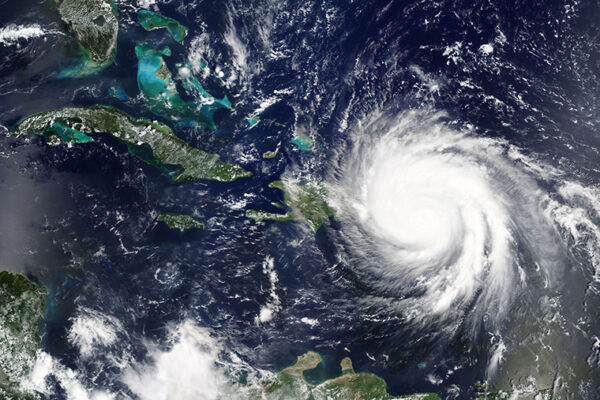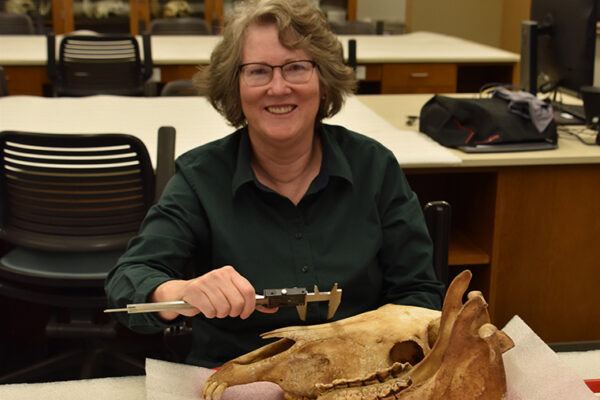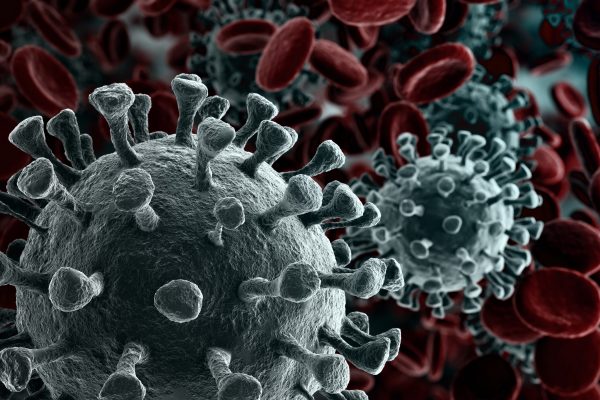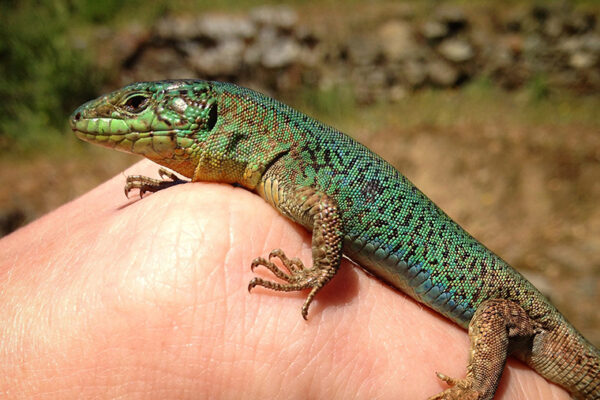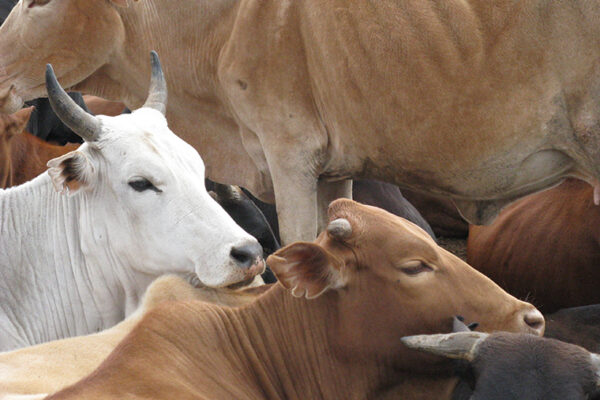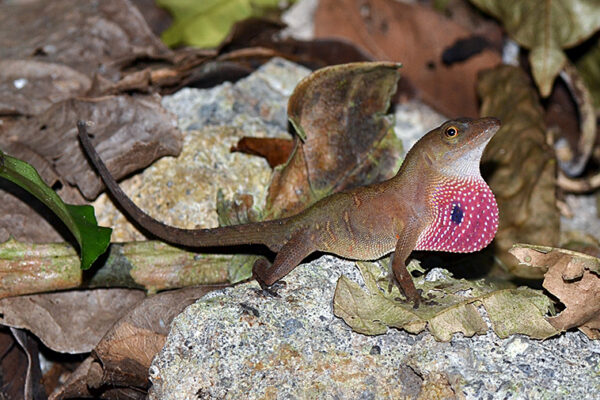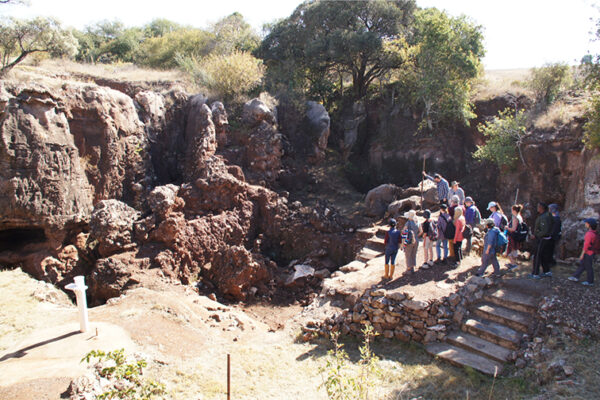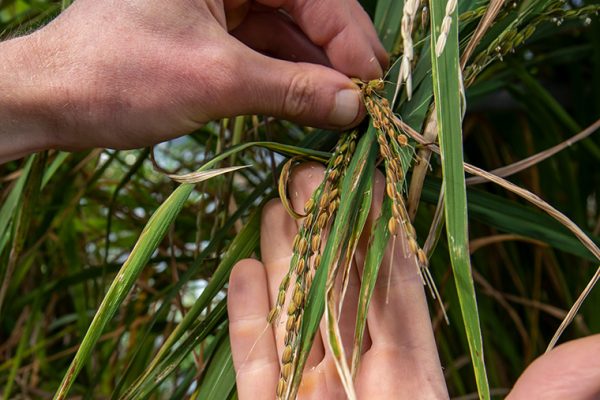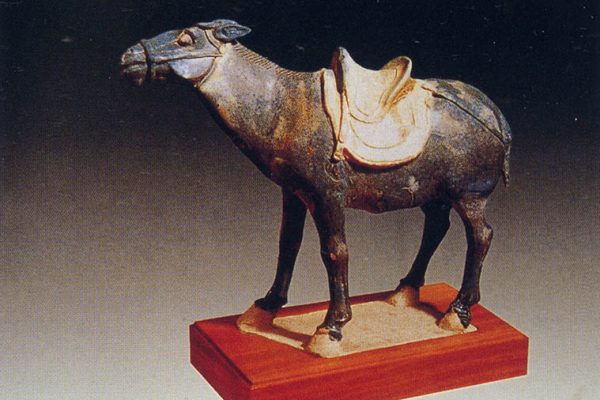Hurricanes twist evolution in island lizards
A new study from Washington University in St. Louis is the first to demonstrate evolutionary response to hurricanes on a wide geographic scale.
Marshall elected to American Academy of Arts and Sciences
Anthropologist Fiona Marshall in Arts & Sciences was elected a member of the American Academy of Arts and Sciences on April 23.
Mathematical model predicts COVID-19 hospitalizations for those with underlying conditions
Mathematician Steven G. Krantz in Arts & Sciences at Washington University in St. Louis is using a mathematical tool called wavelets to combat underreporting in the COVID-19 pandemic. His latest model predicts the number of near-term hospitalizations for older adults with one or a combination of underlying conditions: hypertension, cardiovascular disease and lung disease.
Lizards develop new ‘love language’
Free from the risk of predators and intent to attract potential mates, male lizards relocated to experimental islets in Greece produce a novel chemical calling card, according to new research from biologists in Arts & Sciences at Washington University in St. Louis.
Milk pioneers: East African herders consumed milk 5,000 years ago
Animal milk was essential to east African herders at least 5,000 years ago, according to a new study that uncovers the consumption habits in what is now Kenya and Tanzania — and sheds a light on human evolution, according to new research from anthropologists from Washington University in St. Louis.
$1.2M grant to study evolution of Central American lizards
A research team led by Jonathan Losos, the William H. Danforth Distinguished Professor and professor of biology in Arts & Sciences at Washington University in St. Louis, was awarded $1.2 million for a CRISPR-based gene editing study of Central American lizards.
Fossil discoveries rewrite our family history
An international team of researchers that includes anthropologists at Washington University in St. Louis has unearthed the earliest known skull of Homo erectus, the first of our ancestors to be nearly human-like in their anatomy and aspects of their behavior. The effort was led by La Trobe University in Australia.
Weedy rice is unintended legacy of Green Revolution
Weedy rice is a feral form of rice that infests paddies worldwide and aggressively outcompetes cultivated varieties. A new study led by biologists at Washington University in St. Louis shows that weed populations have evolved multiple times from cultivated rice, and a strikingly high proportion of contemporary Asian weed strains can be traced to a few Green Revolution cultivars that were widely grown in the late 20th century.
Tang Dynasty noblewoman buried with her donkeys, for the love of polo
A noblewoman from Imperial China enjoyed playing polo on donkeys so much she had her steeds buried with her so she could keep doing it in the afterlife, archaeologists found. This discovery by a team that includes archaeologist Fiona Marshall at Washington University in St. Louis is published March 17 in the journal Antiquity.
Long-term analysis shows GM cotton no match for insects in India
Genetically modified Bt cotton is the most widely planted cotton crop in India by acreage, and it is hugely controversial. Supporters long touted increased yields and reduced pesticides to justify its pickup. But that argument does not hold up under the first long-term study of Bt cotton impacts in India. The analysis is co-authored by a Washington University in St. Louis anthropologist in the journal Nature Plants.
View More Stories
